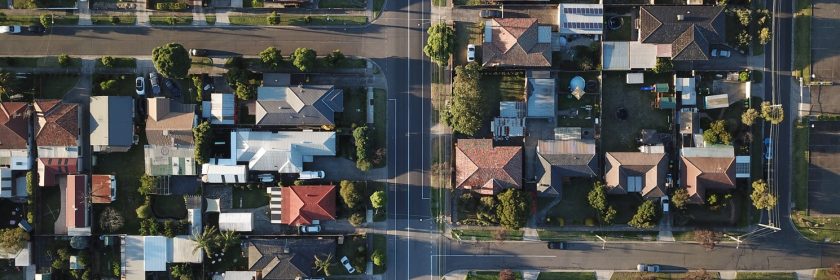How to Get A Mortgage When You Have Bad Credit
Table of Contents
- 1 Getting a Mortgage with Bad Credit is Possible with the Help of a Mortgage Broker
- 1.1 Can You Get Approved For A Mortgage If You Have Bad Credit?
- 1.2 What Is Considered A Bad Credit Score in Canada?
- 1.3 How Fast Can You Raise Your Credit Score?
- 1.4 How Much Do I Need for A Down Payment on A House with Bad Credit? / Can You Buy A House With 20 Percent Down and Bad Credit?
- 1.5 How Much Money Do You Need to Put Down on A House?
- 1.6 How Working with A Broker Can Help You
Getting a Mortgage with Bad Credit is Possible with the Help of a Mortgage Broker
Credit history is an important aspect of the mortgage approval process. Lenders want to see that you are a low-risk borrower, and thus less likely to default on your loan payments.
As a result, bad credit often stands in the way of home ownership. But it shouldn’t.
Even with bad credit, you can still buy a home. It will just take a bit more work, but thankfully a skilled mortgage broker in Ottawa can help.
Can You Get Approved For A Mortgage If You Have Bad Credit?
Yes! Mortage approvals are possible, even if you have bad credit!
That said, you will need to show that you are getting a handle on your finances and can afford to pay your monthly mortgage payments.
To do so, follow these tips:
Check Your Credit Report
You can check your credit score online, with companies like Equifax and TransUnion,. Alternatively, your mortgage broker can do a credit check for you.
Your credit report will show your credit score and any past due accounts or late payments that could be hurting your credit score. You can use this as a guide to help you start improving your credit.
Maintain a Steady Income
Ideally, you will have been employed with a steady income. Your income should be enough to pay all your monthly expenses on time.
If you’re self-employed, you will ideally have a consistent revenue to cover all your expenses.
Pay Bills on Time
About one-third of your credit score is affected by your payment history. As such, always pay your bills and your minimum monthly payments on time!
If you have any overdue accounts, pay these off as soon as possible.
You can improve your credit score, and thus your chances of qualifying for a mortgage, by paying bills on time each month. Also, keep a record of your on-time rent payments to help with your mortgage application. If a lender is not certain whether they should approve the file or note, they will likely ask for proof of your rent payments being made on time.
Pay Off Debts
Debt from credit cards, student loans, lines of credit, car leases, and store credit cards, among others, will affect your credit score.
Besides making the minimum monthly payments on all your debts, try to pay more than the minimum payment each month if possible. This will help you to start paying off your debts.
Reducing or eliminating debt will further help your credit score.
Adjust Your Debt-to-Credit limit Ratio
A high debt-to-credit limit ratio will hurt your credit score since you will have more debt owing than available credit. Work on paying off your debt so it is not hugging the limit of your available credit. When the balance is close to the limit or above the limit, this lowers your credit score drastically over time.
Pay down revolving debt such as credit cards and lines of credit first. You can consolidate your credit card debt with a personal installment loan from your bank. This will allow you to pay off your revolving debt with a lower-interest loan.
If you are responsible with your spending, another option is to increase your credit limit to increase the amount of available credit. But you should only do this if you plan to continue paying off your credit cards and not spend this extra credit.
Improving your debt-to-credit limit ratio is one of the fastest ways to improve your credit score and appear less risky to mortgage lenders.
What Is Considered A Bad Credit Score in Canada?
Credit scores are calculated by two credit bureaus in Canada, Equifax and TransUnion. These scores range from 300 to 900, with higher scores representing better credit. These scores tell lenders how borrowers have handled their available credit in the past.
A credit score between 300 and 599 is considered a bad credit score in Canada, while a credit score between 600 and 649 is considered fair.
What is a Good Credit Score?
Credit scores between 650 to 719 are considered good to lenders. Higher scores, between 720 and 799, are considered very good, and scores between 800 and 900 are considered excellent.
How Fast Can You Raise Your Credit Score?
The time it will take to raise your credit score will depend on your credit history. If you have a history of missed payments, consumer proposal, or bankruptcy, it will take months or even a few years before your credit rises again.
Otherwise, if you just have a lot of debt, you can raise your credit score quickly by paying off your debt and lowering your debt-to-credit ratio.
Once you’ve paid down your credit card, don’t use more than 30 to 60 percent of your credit card limit. It should take about 30 to 90 days for these changes to appear on your credit report.
Also, make sure to check your credit report for any mistakes. If you find any errors—e.g. an outstanding debt that doesn’t belong to you—fix these immediately to help improve your credit score quickly.
How Much Do I Need for A Down Payment on A House with Bad Credit? / Can You Buy A House With 20 Percent Down and Bad Credit?
Since borrowers with bad credit are a higher risk for lenders, lenders typically want borrowers with bad credit to have a 20 to 25 percent down payment for a house.
While this a large amount to save, you will have more equity in your home and more leverage for negotiating mortgage rates with this down payment.
A larger down payment also reduces the size of your mortgage and monthly mortgage payments. And it will allow you to avoid paying the CMHC insurance premiums. Please note, in some cases, it is possible to qualify for a mortgage with poor credit with as little as 15% down payment, but this is not to be expected.
How Much Money Do You Need to Put Down on A House?
Aside from a 20 to 25 percent down payment on a house, you will also need to account for other expenses such as possible lender fees for processing bad credit applications and closing costs.
Lender fees are around 1 percent of the mortgage loan value, while closing costs are around 1.5 to 2.5 percent of the home’s value.
How Working with A Broker Can Help You
Mortgage brokers in Ottawa can help you along the path to buying a home, even if you have bad credit. A mortgage broker will help you understand the current state of your finances and the mortgage amount you qualify for.
They will also help you improve your financial situation and credit score so you can qualify for a mortgage and get a better deal.
Home ownership is possible for those with bad credit. You just need to work on improving your credit score and getting on the right track. With the help of a bad credit mortgage broker, you can be that much closer to making home ownership a reality.

Chris Allard’s experience in the field means he can get you offers with over 50 financial institutions lending in Ottawa. Every lender has many mortgage products they offer, which means Chris and his team will make sure a mortgage caters to your needs while also ensuring you get a competitive rate. Chris Allard is a proud mortgage broker of Smart Debt Mortgages, independently owned and operated. Smart Debt broker #12236.


